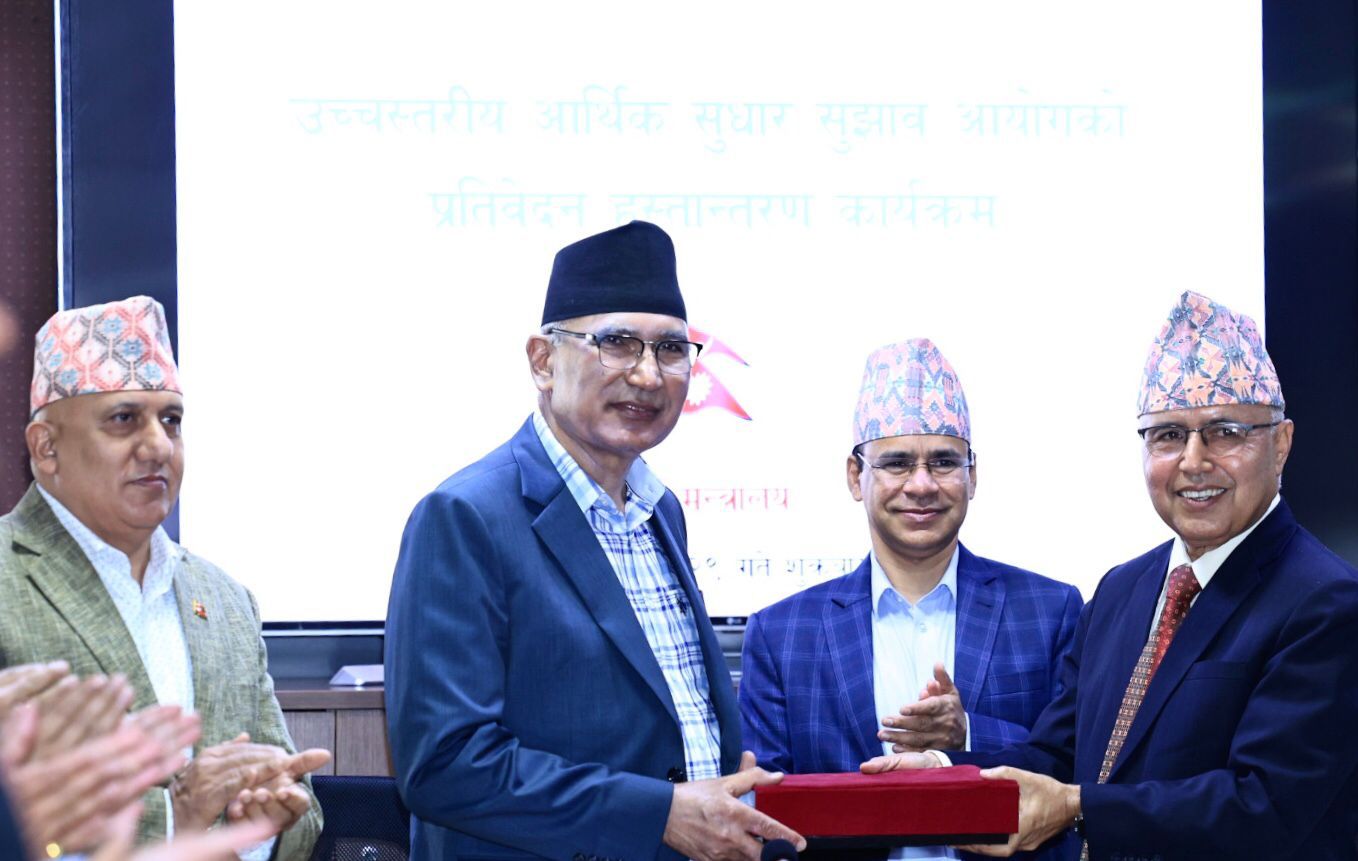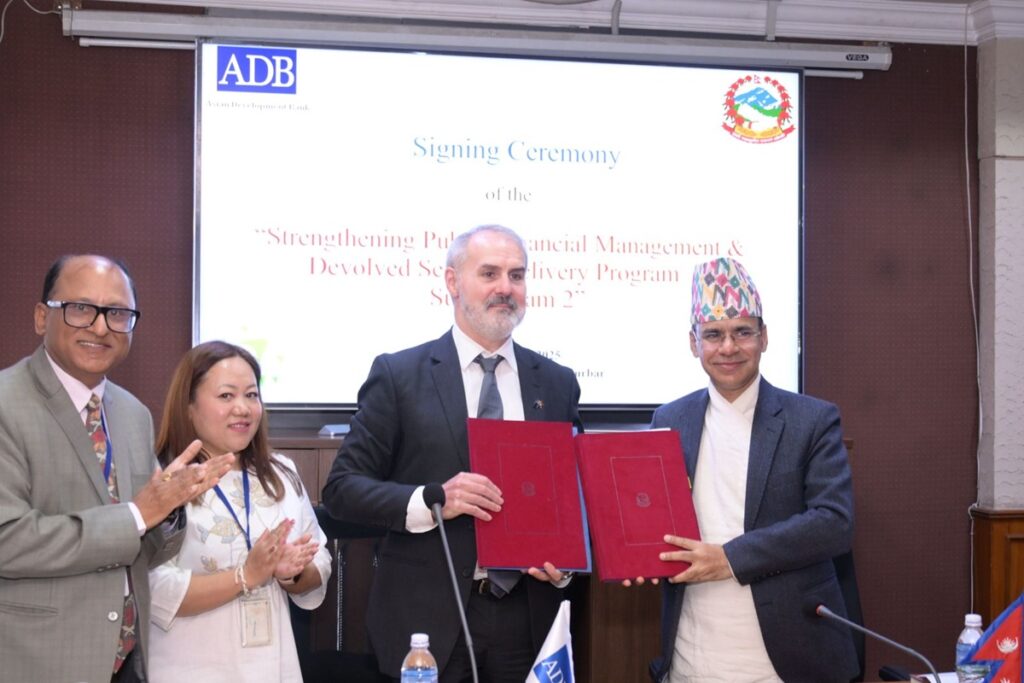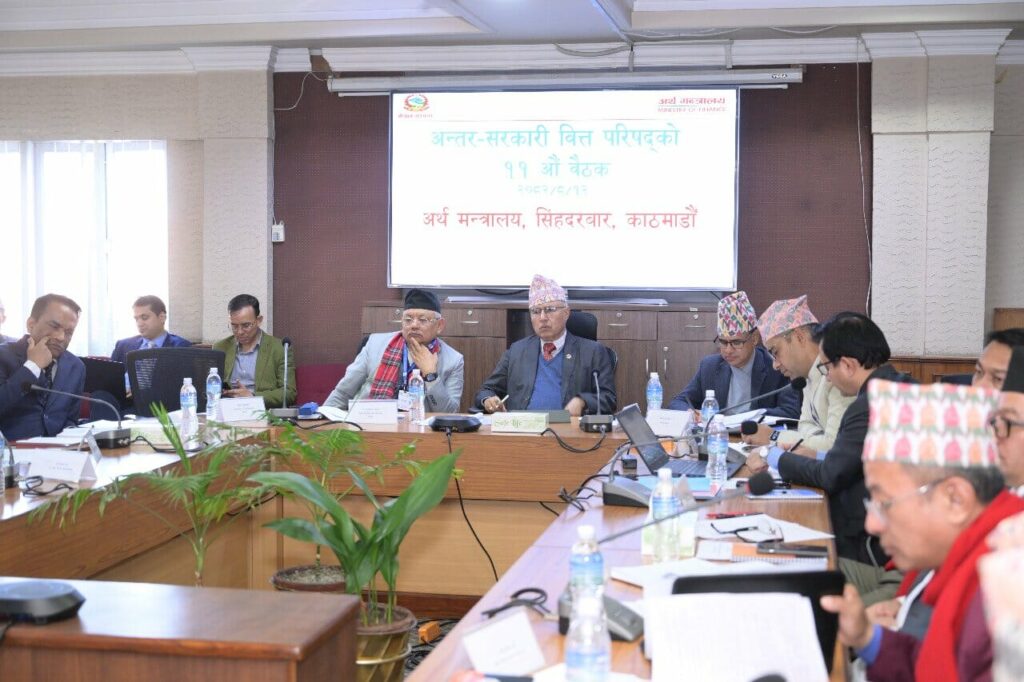Kathmandu. As per the mandate given by the Government of Nepal to the High Level Economic Suggestion Commission, the government has started the study work from the second week of October 2081 and submitted the final report to Deputy Prime Minister and Finance Minister Bishnu Prasad Poudel today. Earlier, the Commission had submitted an interim report on December 27, incorporating the issues that need to be done immediately.
fiscal year 2078. According to the report, the economic growth rate has slowed down due to weak overall demand side when the data from 79 to the time the Commission started the study. “In the interaction with private sector organizations, businessmen from all geographical regions, representatives of state and local governments and experts, the issue of declining consumption growth rate and decline in investment was mainly raised as the current character of the economy,” the report said. There seems to be a decline in investment. ’
Although the overall demand side is weak, the commission has concluded that the pro-demand policies alone are not enough to solve the immediate problems of the economy. “Policy intervention is needed to improve the demand side immediately, but to achieve respectable economic growth, there is a need for competitiveness by making structural reforms from the supply side to create an investable environment and reduce the cost of production,” the report said.
While formulating reform proposals, the Commission has taken some assumptions: (a) to provide dynamism to the economy by ending the existing economic slowdown, (b) to create economic opportunities, (c) to build a trust-based system, (d) to make sustainable and best use of available natural resources, (e) to build a borderless economy, and (f) to increase economic growth by maintaining macroeconomic stability. “The policies and programmes of the government need to be targeted towards creating economic opportunities, encouraging creation and reaching out to all by reducing structural barriers,” it said. It suppresses creation. Therefore, the laws, methods and procedures formulated to run the overall economy should be based on trust. Every citizen has the capacity and it is necessary to take the view that using that capacity will benefit not only the individual but the entire community and the nation. ’
In recognition of creating opportunities, building a trust-based system and giving freedom to conduct economic activities, the Commission has proposed to amend more than a dozen acts that repeal more than a dozen acts and issue some new laws. The Commission has suggested reforms in sectoral economic policies as they cannot work without improving the institutional capacity and credibility of public bodies.
The Commission has suggested reforms to reduce barriers in the areas of economic growth such as agriculture, forestry, land, mines, water resources, tourism and information technology and expand opportunities in those sectors. The Commission has also identified policy and programmatic interventions to be made in these areas as physical infrastructure development, urban development, energy security, education and skill development, health and research and development are necessary to create opportunities in the areas of economic growth.
The Commission is of the view that to benefit from the global economy by overcoming the limitations created by the country’s geopolitical location, it should work in an innovative way with strong will power and emphasize on building a borderless economy. The Commission has studied only limited issues of public finance as the high-level Public Expenditure Review Commission and the High-Level Tax Reform Committee formed by the Government of Nepal in the recent past on some issues of public finance have found it appropriate to implement the reform recommendations made on public expenditure, revenue policy and administration.
Similarly, the Commission has not mentioned anything more in support of the reform on such issues as some agencies of the Government of Nepal have formulated a strategy paper for periodic reforms and improved them in such a way that the results are visible. The Commission has suggested that every body should prepare and implement the plan of institutional and functional reforms and make the reform a regular work of the organization.
Similarly, the report does not include the work as it has not been able to conduct adequate study on some financial issues as the work has to be completed within the stipulated period of six months.
अन्तिम प्रतिवेदन






















